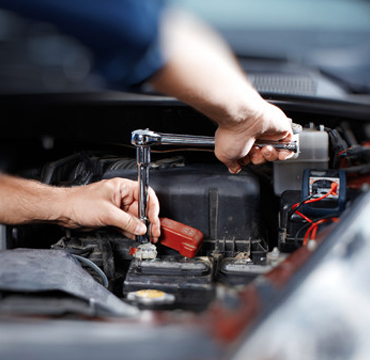49. Cabecera noticia sobrecoste aceite
Lubricant manufacturers assume the financial overrun of the collection of used oils in Spain
The Board of Directors at SIGAUS has decided, in its monthly meeting held last week on the 15th of March, to assume, without transferring to the consumers of industrial oils, the most significant cost of the management of used oils in Spain, resulting from the environment of low petrol prices and the drop in demand for products derived from the treatment of this residue. In 2016 SIGAUS will increase by 59% the average financing it devotes to the collection of used oils from the managment companies with whom it holds contracts, with the aim of continuing to ensure free collection and proper handling of this hazardous residue.
17-03-2016

24. Párrafo noticia sobrecoste aceite
SIGAUS, the Integrated Management System (IMS) entrusted with, on behalf of the its affiliate companies, manufacturers and importers of industrial oils – the collection and handling of used oils in Spain, in accordance with what has been established through the applicable legislation in force (RD 679/2006 and Law 22/2011), has presented the results of the study it has undertaken into collection costs in our country, performed via an independent company (PwC), and which takes into account international prices that affect this activity, as well as the information supplied by the main companies in this sector.
As a result of the aforesaid study, notification has been given to handlers of a new financing system, that will be applied in a back-dated manner from the 1st of January 2016, and which will lead to an average increase in financing of collections by 59%.
This is a progressive financing system, based on two variables that have the most notable repercussions on collection, such as the distance to be travelled to the producer and the volume collected, and aims to provide more money in those areas in Spain that are further removed from major urban centres, such as mountainous and underprivileged areas, in which major costs are incurred and thus avoiding highly elevated environmental risks (the majority or reserved spaces or hydric resources in Spain are located therein).
Thus, an array of financing has been devised that ranges from an increase of 10% in the case of financing of collections in 193 municipalities (including all major Spanish cities) which, due to proximity to handling centres and simultaneously the creation of large volumes of used oils, benefit from significant economies of scale in the itinerant collection of residues. At the other end, up to 4 times more will be paid (more than 80 €/t of used oil) for collection in 6,600 Spanish municipalities (80% of the total number of municipalities, including all rural Spanish areas) in which the collection of used oils requires significant transport to obtain smaller volumes.
32. Contenido noticia sobrecoste aceite
“
The new system will mean a significant economic exertion on the part of the IMS, which will be wholly assumed by its affiliate companies avoiding this being transferred to the consumers for the moment.
„
The aim of this new financing system is to adapt to the environment of low petrol prices (the barrel price of Brent has lost more than 30% of its value in the last 6 months), applying the necessary measures to continue fulfilling SIGAUS’ obligations (on behalf of its affiliate companies) with respect to the collection and handling of used oils in Spain, financing thus the shortfalls in the activities performed by used oil handlers.
The CEO of SIGAUS, Eduardo de Lecea, pointed out: “We assume wholly the responsibility for continuing to ensure the proper handling of used oils in Spain, collecting at no cost, should the residue comply with specific conditions, and giving this adequate treatment from an environmental viewpoint. Evidently, in its current guise, providing this guarantee demands of us an additional financial strain. This will be borne without having repercussions on the consumer, increasing noticeably the level of financing devoted to collection in a general sense, but more so in those areas in which collection involves greater expenses. It is not the same to collect used oils from major urban nuclei, where we find a great deal of residue in a reduced area, as it is to travel more than 150 km to collect one drum of used oil from a rural outlet. We are well aware that it is in the second scenario in which the risk is multiplied and where we must act resoundingly so that used oils do not contaminate any part of Spain”.